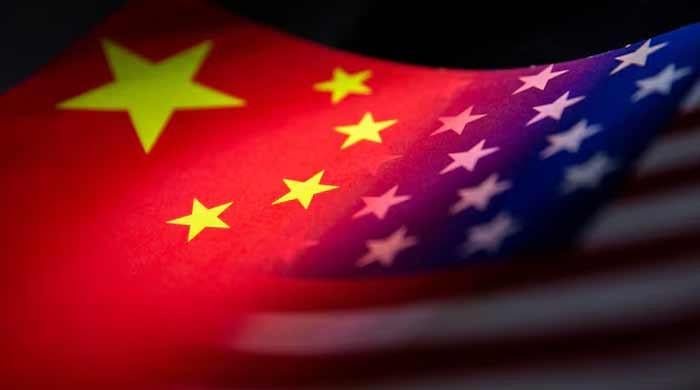
Beijing Residents Unfazed by Trump's Tariff Threat: A Look into Local Perspectives
![China and US Flags Illustration]()
In the midst of escalating trade tensions between the United States and China, recent statements from former US President Donald Trump regarding a potential 100% tariff on all Chinese exports have stirred discussions worldwide. However, the reaction from residents of Beijing tells a different story — one marked by resilience and indifference. This article delves into the local sentiments surrounding Trump's tariff threat, the broader implications for international trade, and the economic landscape in China.
Understanding the Context of the Tariff Threat
Tariffs, defined as taxes imposed on imported goods, are often used by governments to protect domestic industries from foreign competition. In Trump's case, the announcement of a 100% tariff on all Chinese exports was seen as an aggressive move in the ongoing trade war aimed at reducing the trade deficit between the two nations. However, the reaction from Beijing's residents has been surprisingly muted.
Beijing's Economic Landscape
Beijing, as the capital city, serves as a hub for various industries ranging from technology to manufacturing. With a robust economy and a growing middle class, residents have learned to navigate the complexities of international trade. The city's businesses, both large and small, have adapted to the fluctuating trade environment, often finding ways to mitigate the effects of tariffs through innovation and local sourcing.
Local Perspectives: A Sense of Resilience
1. Indifference to Political Maneuvering
Many Beijingers appear unfazed by Trump's threats, viewing them as part of a larger political game rather than a direct threat to their livelihoods. As one local entrepreneur noted, “We’ve been through trade tensions before, and we’ve found ways to adapt. This is just another chapter in the long story of US-China relations.”
2. Focus on Domestic Growth
The Chinese government has been actively promoting domestic consumption and innovation as pathways to economic growth. Residents are increasingly focused on supporting local businesses and embracing homegrown products, which diminishes the impact of potential tariffs on imports.
3. Global Supply Chain Adaptation
Many businesses in Beijing have diversified their supply chains to lessen reliance on the US market. With increased investment in Southeast Asia and other regions, companies are exploring alternative markets, thereby reducing vulnerability to US tariff policies.
Economic Implications of Tariff Threats
While the immediate reaction from Beijing residents may seem indifferent, the implications of Trump's tariff threats extend beyond local sentiment.
Impact on Exports and Imports
A 100% tariff on Chinese exports would undoubtedly affect the cost of goods sold in the United States. However, the reality is that many American consumers and businesses rely on affordable Chinese products, which could lead to increased prices and reduced purchasing power.
Long-Term Trade Relations
Trump’s tariff threats could further strain US-China relations, complicating negotiations on various fronts, including technology transfer, intellectual property rights, and market access. As both countries are major players in the global economy, the outcome of these tensions will have ripple effects on international trade and economic stability.
The Bigger Picture: Trade Wars and Global Economies
The trade tensions between the US and China are indicative of a more significant shift in global economic dynamics. As countries reassess their trade policies, the focus is shifting towards building resilient supply chains and fostering local economies.
The Role of Technology
The rise of technology has also played a crucial role in how countries approach trade. E-commerce and digital platforms have enabled businesses to reach global markets without the need for traditional export methods. This evolution allows Chinese companies to adapt quickly, minimizing the impact of tariffs through innovative selling strategies.
Conclusion
In conclusion, while Donald Trump's tariff threats may create headlines and spark debate in international forums, the residents of Beijing remain largely unfazed. Their focus on resilience, local growth, and adaptation to the global economic landscape highlights a pragmatic approach to navigating the uncertainties of international trade. As the world watches the unfolding events, one thing is clear: the spirit of innovation and adaptability in Beijing remains strong.
FAQs
1. What is the potential impact of a 100% tariff on Chinese exports?
A 100% tariff would significantly increase prices for consumers in the US, potentially leading to reduced sales of Chinese goods and a negative impact on businesses that rely on these imports.
2. How have Beijing residents reacted to previous trade tensions?
Beijing residents have shown resilience and adaptability in the face of previous trade tensions, often focusing on supporting local businesses and diversifying supply chains.
3. What strategies are Chinese businesses using to cope with tariffs?
Many Chinese businesses are diversifying their supply chains, investing in alternative markets, and promoting domestic consumption to mitigate the impact of US tariffs.
4. How do tariffs affect global supply chains?
Tariffs can disrupt global supply chains by increasing costs and creating uncertainty, prompting businesses to reevaluate their sourcing strategies and consider alternatives.
5. What is the future of US-China trade relations?
The future of US-China trade relations remains uncertain, as ongoing negotiations and political dynamics will play a crucial role in shaping the landscape of international trade.
Tags
World
